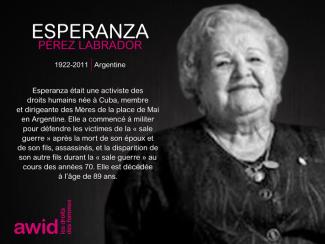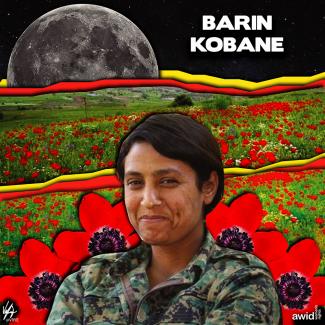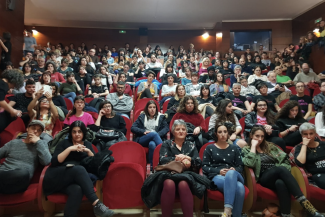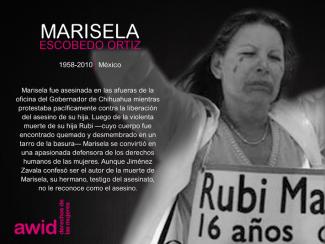Veena Singh es isleña de Fiyi, feminista y mujer marrón. Nació y creció en una pequeña ciudad rural de Fiyi y es de origen étnico mixto (su madre es indígena fiyiana y su padre es fiyiano con ascendencia india). Es una feminista que trabaja por el desarrollo y está muy a favor de «cambiar el poder de lugar para crear cambios positivos» y de «construir una economía de la amabilidad». Ha trabajado sobre todo en derechos humanos, igualdad de género e inclusión social y cuenta con más de 18 años de experiencia profesional ocupándose especialmente de los derechos de mujeres y niñxs, mujeres, paz y seguridad (CSONU 1325), seguridad humana, desarrollo comunitario y medios comunitarios. Veena fue empleada y voluntaria en varias ONG con sede en Fiyi antes de sumarse a SPC-Fiji Women's Rights Movement [Movimiento por los derechos de las mujeres en Fiyi], FemLINKPacific, la Cruz Roja de Fiyi y Save the Children (Fiyi) .
Además, ha trabajado en diversas áreas y temáticas del desarrollo, entre ellas acceso a la justicia, prevención de conflictos y construcción de la paz, salud y derechos sexuales y reproductivos (SDSR), participación política de las mujeres, liderazgo y toma de decisiones, a las que recientemente le sumó el área de estadísticas de género. Su trabajo le ha permitido colaborar estrechamente con colegas del sector del desarrollo, feministas, activistas, representantes gubernamentales y personas del sector de la paz de las regiones del Pacífico, Asia, Europa y África. Cuando no está en su oficina, le gusta promover y proteger el ambiente, concientizar acerca de la salud mental positiva y el bienestar, y dedicarle tiempo a la escritura.
Es madre de 11 gatxs, viste orgullosamente saris y colecciona postales. Veena es una observadora reflexiva del rumbo que toman las actividades feministas en Fiyi, en la región del Pacífico y en las organizaciones que integra, y procura, según sus propias palabras, «descolonizar su mente y su ‘ser’ mediante la autorreflexión radical». Le importa mucho publicar escritos que interesen a la comunidad de la diáspora del Pacífico y que le permitan










